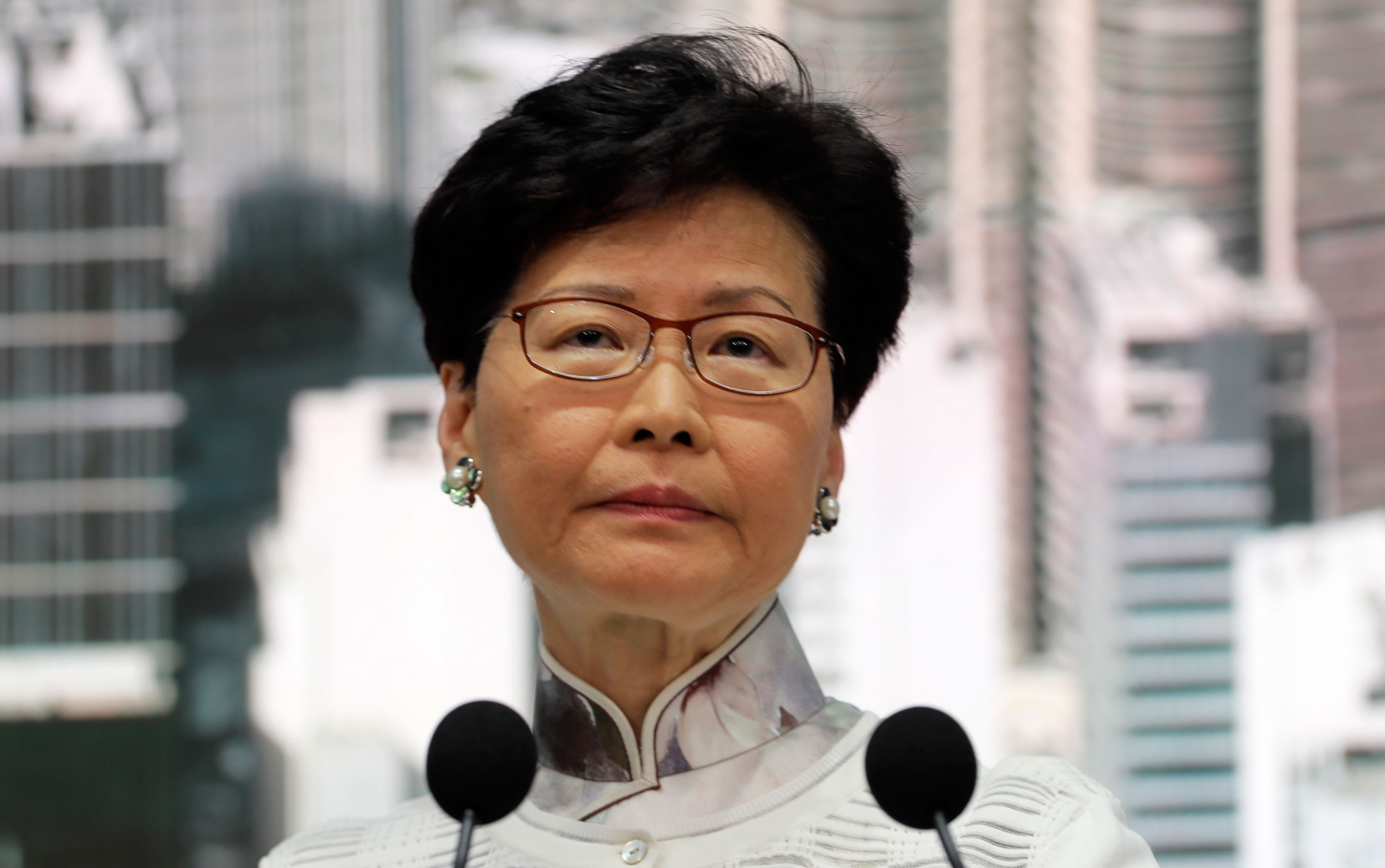Backing down after days of huge street protests, Hong Kong’s chief executive, Carrie Lam, said on Saturday that she would indefinitely suspend a bill that would allow extraditions to mainland China.
It was a remarkable reversal for Lam, the leader installed by Beijing in 2017, who had vowed to ensure the bill’s approval and tried to get it passed on an unusually short timetable, even as hundreds of thousands demonstrated against it this week. But she made it clear that the bill was being delayed, not withdrawn outright, as protesters have demanded.
“I believe that we cannot withdraw this bill, or else society will say that this bill was groundless,” Lam said at a news conference. She said she felt “sorrow and regret” that she had failed to convince the public that it was needed.
City leaders hope that delaying the legislation will cool public anger and avoid more violence in the streets, said people with detailed knowledge of the government’s plans, including advisers to Lam.
But before Lam’s announcement, leading Opposition figures said a mere postponement of the bill would not satisfy the protesters, who had been planning another large demonstration for Sunday. As reports emerged on Saturday that the bill would be delayed, not withdrawn, organisers of the Sunday protest confirmed that it was still on.
“We can’t accept it will just be suspended,” Minnie Li, a lecturer with the Education University of Hong Kong who joined a hunger strike this week, said on Saturday morning, as word of Lam’s plan to suspend the bill was emerging.
“We demand it to be withdrawn. The amendment itself is unreasonable. Suspension just means having a break and will continue later. What we want is for it to be withdrawn. We can’t accept it.”
Lam and her superiors in Beijing were reluctant to kill the bill outright, said the people familiar with city officials’ thinking. They insisted on anonymity because they were not authorised to speak on behalf of the government.
A full withdrawal of the legislation would recall the Hong Kong government’s reversals in the face of public objections to other contentious bills that were seen as infringing on the city’s liberties — national security legislation, in 2003, and compulsory patriotic education legislation, in 2012.
A team of senior Chinese officials and experts met on Friday with Lam in Shenzhen, a mainland Chinese city bordering Hong Kong, to review the situation, one of the people with knowledge of the government’s policymaking said.
The bill would make it easier for Hong Kong to send people suspected of crimes to jurisdictions with which it has no extradition treaty, including mainland China.
Many people in Hong Kong, a semi-autonomous territory with far more civil liberties than the mainland has, fear that the legislation would put anyone in the city at risk of being detained and sent to China for trial by the country’s Communist Party-controlled courts.
The bill had been moving through the legislative process with unusual speed, and legal experts who raised concerns about that said it would have to be withdrawn in order to address those worries.
Otherwise, voting on the bill could restart at any time, at the discretion of the head of the legislature, which is controlled by pro-Beijing lawmakers, these experts said.
More than a million people marched against the bill last Sunday, according to protest leaders, the vast majority of them peacefully.
That was followed by street clashes on Wednesday, as the police used tear gas and rubber bullets on demonstrators.
Officials believe that delaying the bill will reduce the risk of a young protester being seriously hurt or even killed in clashes with police, then becoming a martyr in the eyes of the public.
Dozens of protesters have already been injured, and video footage of riot police apparently using excessive force against unarmed demonstrators has deepened public anger in the city.










